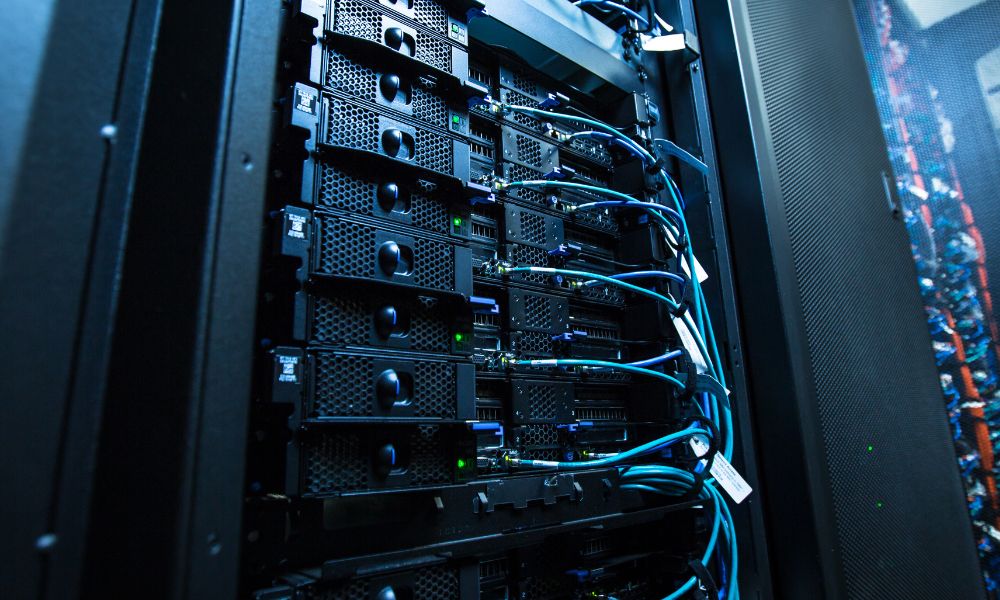Server or Cloud for Small Business: Which Is Right for Your Needs?

Choosing between a server or cloud for small business is a pivotal decision that impacts operations, costs, and growth. Small businesses, from retail shops to tech startups, rely on technology to manage data, host websites, or support remote teams. On-premises servers offer control but demand significant investment, while cloud solutions provide flexibility at the cost of internet reliance. Making the wrong choice can lead to inefficiencies or unexpected expenses. This guide compares servers and cloud solutions, highlighting benefits, drawbacks, and key factors to help small businesses decide what’s best for their needs, ensuring efficiency and scalability with server or cloud for small business.
On-Premises Servers: Benefits and Drawbacks
On-premises servers, physical hardware housed at your business, offer distinct advantages for small businesses. The primary benefit is control. You own the server, allowing full customization of hardware, software, and security protocols to suit specific needs, like running proprietary software for a niche retail business. Servers also enable offline access, ideal for businesses in areas with unreliable internet. A 2024 survey by TechRadar found that 35% of small businesses prefer servers for data sovereignty.
However, servers have significant drawbacks. Initial costs are high—$800–$5,000 for hardware, plus $500–$1,000 annually for maintenance, power, and cooling. Small businesses may need to hire IT staff or consultants, adding $2,000–$10,000 yearly. Maintenance tasks, like software updates or hardware repairs, can disrupt operations. For example, a server crash could halt a small law firm’s document access for hours. Choosing a server or cloud for small business requires weighing these costs against the need for control and offline capabilities.
Read more: Best Website to Buy Medical Equipment: Explore Top 5
Cloud Solutions: Benefits and Drawbacks
Cloud solutions, like AWS, Google Cloud, or Microsoft Azure, provide virtual servers accessed via the internet, offering compelling benefits for small businesses. Scalability is a key advantage—you can adjust resources instantly, such as increasing storage for an e-commerce site during holiday sales. Cloud services are often more affordable, with plans like AWS Lightsail starting at $3.50/month. They require no upfront hardware costs and minimal maintenance, as providers handle updates. A 2023 Gartner report noted that 92% of enterprises, including small businesses, use cloud computing for its flexibility.
Drawbacks include dependency on internet connectivity—outages can disrupt access to critical data. Security concerns also arise, as data is stored off-site, potentially exposing it to breaches if the provider’s safeguards fail. For instance, a 2024 data breach at a cloud provider affected 15% of its small business clients. Subscription costs can also escalate with increased usage, potentially surpassing server costs over time. Evaluating server or cloud for small business means considering these trade-offs against operational needs.
Read more: Used RV Price Comparison 2025: Your Guide to Smart Buying
Key Factors in Choosing Server or Cloud
Several factors influence whether a server or cloud for small business is the better choice. Budget is critical—servers require high upfront costs ($1,000–$5,000), while cloud plans start low but scale with usage (e.g., $15–$100/month). Data sensitivity matters for regulated industries like healthcare or finance, where on-premises servers may ensure compliance with HIPAA or GDPR. Team size affects management—solo entrepreneurs may prefer cloud’s simplicity, while larger teams might leverage servers for custom workflows.
Scalability needs are also key. A growing e-commerce business benefits from cloud’s ability to scale storage or computing power instantly, whereas a static accounting firm might not need such flexibility. Technical expertise is another factor—servers demand IT skills, while cloud platforms like FileCloud require minimal setup. Assess your business’s priorities—cost, control, or flexibility—to determine whether server or cloud for small business aligns best with your goals.
Decision Framework: Questions to Assess Your Needs
To choose between server or cloud for small business, ask these key questions to create a decision-making checklist:
-
What’s your budget? Can you afford a $2,000 server plus $1,000/year maintenance, or is a $20/month cloud plan more feasible?
-
How sensitive is your data? Does your business (e.g., healthcare) require on-site control to meet regulations like HIPAA?
-
Do you need scalability? Will your business, like an e-commerce store, need to scale resources during peak seasons?
-
What’s your internet reliability? Can you tolerate downtime if the internet fails, or is offline access critical?
-
Do you have IT expertise? Can your team manage server maintenance, or do you prefer cloud’s managed services?
-
What’s your growth plan? Will your needs change in 1–2 years, requiring flexible cloud solutions or stable servers?
For example, a graphic design studio with stable data needs might choose a server for control, while a seasonal retail business might opt for cloud scalability. Create a pros-and-cons list based on these answers. Testing a cloud free tier (e.g., Google Cloud’s $300 credit) or consulting an IT expert can clarify your choice. This framework ensures server or cloud for small business decisions align with your unique needs.
Comparison Table: Server vs. Cloud Costs
|
Aspect |
On-Premises Server |
Cloud Solution |
|
Upfront Cost |
$800–$5,000 (hardware) |
$0–$50 (setup, free tiers) |
|
Monthly Cost |
$50–$200 (power, maintenance) |
$15–$100 (subscription) |
|
Maintenance |
IT staff or $500–$2,000/year |
Handled by provider |
|
Scalability |
Limited, requires upgrades |
Instant, pay-as-you-go |
|
Security |
Full control, physical access |
Provider-dependent, encrypted |
This table highlights why cloud solutions often suit budget-conscious businesses, while servers appeal to those prioritizing control.
Case Study: A Small Business’s Server vs. Cloud Choice
BeanBrew, a small coffee shop chain with three locations, faced the server or cloud for small business dilemma in 2024. Needing to manage inventory and customer data, they considered a $1,500 server but found maintenance costs ($1,200/year) daunting. Instead, they chose Microsoft Azure’s $20/month plan, which offered scalable storage for their loyalty program data and required no IT staff. During peak holiday sales, they scaled up resources, avoiding downtime. This cloud choice saved them $2,000 annually and supported growth, proving the value of aligning technology with business needs.
Conclusion
Deciding between a server or cloud for small business requires careful evaluation of costs, scalability, security, and expertise. On-premises servers offer control but demand high investment and maintenance, while cloud solutions provide affordability and flexibility at the cost of internet reliance. By assessing budget, data sensitivity, and growth plans through a clear decision framework, small businesses can choose wisely. BeanBrew’s success with cloud highlights the power of informed choices. Whether you prioritize control or scalability, selecting the right server or cloud for small business ensures efficiency and supports long-term growth.










